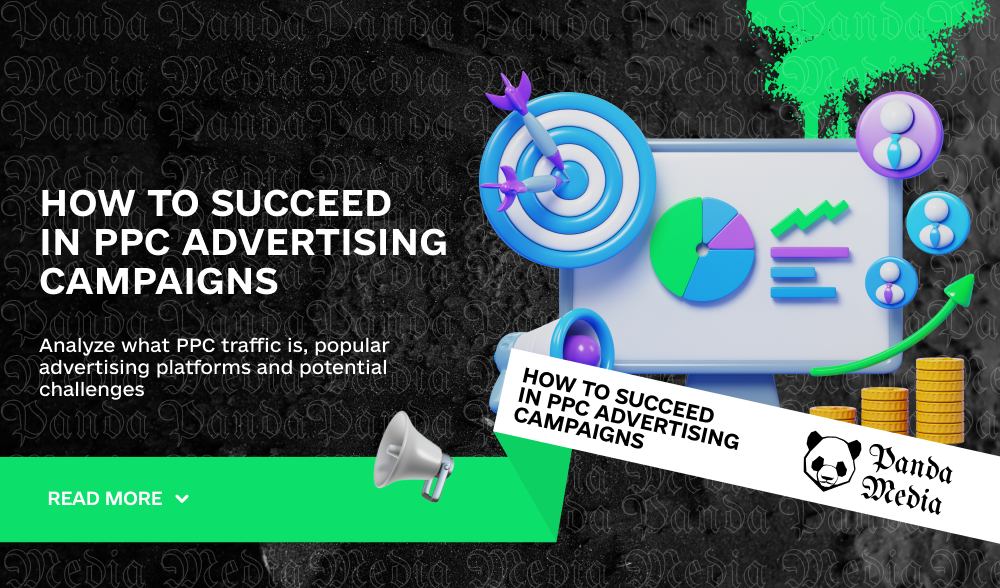Don't miss interesting news

When a beginner with limited financial resources enters the affiliate marketing arena, he or she starts looking at ways to maximize income with a minimum investment. We can’t promise such results, but there is a payment system that is considered the most affordable for beginners, requires little investment, and can provide a decent ROI. Today we will cover the topic of PPC – its basics, features, and platforms for work.

PPC, which stands for Pay-per-click, implies a payment for each click on an advertisement. Advertisers compensate partners for the cost of user transitions to websites or product pages.
This advertising model is optimal for beginners in the field of affiliate marketing. The main task is to attract customers to click on ads without the need to create complex sales strategies or motivate them to buy. At the same time, the payment for this type of traffic is usually not high.
At the same time, successful work in PPC arbitrage is not limited to a simple click of a button. It requires a deep understanding of the affiliate marketing mechanism and the ability to use keywords effectively since most PPC traffic is generated from search engines.

A significant element in traffic arbitrage is Google contextual advertising, which is the leading source of visits under this payment model. Here are some arguments in its favor:
For PPC campaigns, Google mainly uses search and banner ads for e-commerce.
However, Google is not the only platform used for PPC. Microsoft Advertising and Bing Ads also allow you to place ads on Microsoft partner websites, including Yahoo and AOL.
Social networks should not be underestimated – advertising on Facebook or Linkedin can effectively drive traffic for PPC.

The approach to the PPC advertising model has its unique features compared to other types of marketing. We have written detailed recommendations on how to effectively launch your PPC campaign to maximize the number of clicks.
Evaluate advertising platforms. Although Google dominates in terms of traffic, in some situations it may be advisable to choose alternative platforms. It depends on the specifics of your business, products or services, and your budget. Carefully analyze the available platforms and choose the one that best suits your offer.
Study the keywords related to your product. As you know, Google is the main resource for driving traffic. If you choose this platform and have no experience with it before, it is important to understand how advertising on it works. Simply put, you can’t just ask the platform to place your ad in the first position, as the auction system works. When you launch an ad campaign, the platform analyzes it with keywords and estimates the potential demand among the target audience. Then, an auction takes place, where the ads that Google believes will have the highest conversion rate get the best positions. Less effective offers end up in lower positions, and your budget is wasted without bringing in the expected traffic.

Various challenges can arise when working with PPC advertising. Here are some of the key ones and ways to solve them:
PPC traffic is a good choice of a starting platform for newcomers to arbitrage. It is easy to earn money by clicking on an advertising banner or link. Although many people use Google to run ads, skillful Facebook users can also effectively adapt and earn money from advertising on this platform.
The key to success with PPC is the ability to choose the right keywords, using the resources mentioned above. However, you shouldn’t think that PPC is an easy way to make money without much effort. It also has its challenges and difficulties. With the right tools, strategies, budget optimization, and error correction, you will succeed.